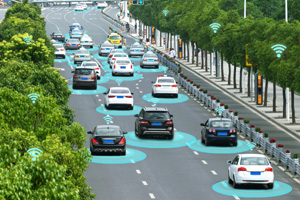
Autonomous vehicles, also known as self-driving cars, rely on a combination of sensors, cameras, and artificial intelligence to navigate the roads without human intervention. While these vehicles hold promise for reducing accidents caused by human error, they also raise unique legal challenges when accidents do occur.
In Pennsylvania, just like in other states, determining liability in accidents involving autonomous vehicles can be a complex process. The traditional framework of assigning fault based on driver negligence may not always apply when a self-driving car is involved. Instead, liability may rest with the vehicle manufacturer, the software developer, or even the entity that owns or operates the autonomous vehicle.
Determining Liability in an Autonomous Vehicle Accident
Several key factors come into play when assessing liability in accidents involving autonomous vehicles. One of the primary considerations is the role of the human driver in a self-driving car crash. While autonomous vehicles are designed to operate without direct human intervention, there are circumstances where a human driver may need to take control of the vehicle, leading to questions of responsibility in the event of an accident.
Product liability laws play a significant role in determining the liability of autonomous vehicle manufacturers. These laws hold manufacturers accountable for any defects or malfunctions in the self-driving technology that may have contributed to the accident. Investigating crashes involving a self-driving car is crucial to understanding the sequence of events and allocating liability appropriately.
Potentially Liable Parties in Autonomous Vehicle Accidents
When accidents involving autonomous vehicles occur in Pennsylvania, determining liability can be a complex process. Factors such as the specific circumstances of the crash and the actions of those involved play a significant role in assigning fault. Car manufacturers may be held liable for accidents with automated vehicles if deficiencies in their technology are found to have contributed to the incident.
Human drivers still have legal responsibilities when operating vehicles alongside autonomous cars. These responsibilities include obeying traffic laws, maintaining control of the vehicle, and ensuring the safety of other drivers and pedestrians. Human drivers should also be prepared to take control of their own vehicles in emergency situations or when the autonomous system is not functioning properly.
Product liability issues may surface in accidents involving autonomous vehicles. The car manufacturer is responsible for ensuring the safety and proper functioning of the self-driving car. If an accident occurs due to a defect in the autonomous vehicle’s software, hardware, or sensors, the manufacturer may be held liable for any injuries or damages that result from the accident.
In addition to product defects, liability issues may also arise in cases where the autonomous vehicle’s software fails to make the correct decision in a complex driving situation. Manufacturers may be held responsible for programming errors or flaws in the self-driving technology that contribute to an accident.
Schedule a Consultation With a Car Accident Lawyer
As technology continues to advance, it is important to stay informed and educated about how these advancements impact our daily lives. With autonomous vehicles becoming more prevalent on our roads, it is essential to understand how liability is determined in the event of an accident. Trust Rubin, Glickman, Steinberg & Gifford, P.C. to provide you with the legal representation you need to protect yourself and your loved ones in the event of an autonomous vehicle accident.
At Rubin, Glickman, Steinberg & Gifford, P.C., we are dedicated to helping you navigate the complex legal landscape of autonomous vehicles and liability in Pennsylvania accidents. Our skilled team of attorneys is here to provide you with the guidance and support you need to understand your rights and responsibilities in the event of an accident involving an autonomous vehicle. Call us at (215) 822-7575 or fill out our contact form.

Rubin, Glickman, Steinberg & Gifford P.C.
Pennsylvania Attorney's
June 22, 2024








